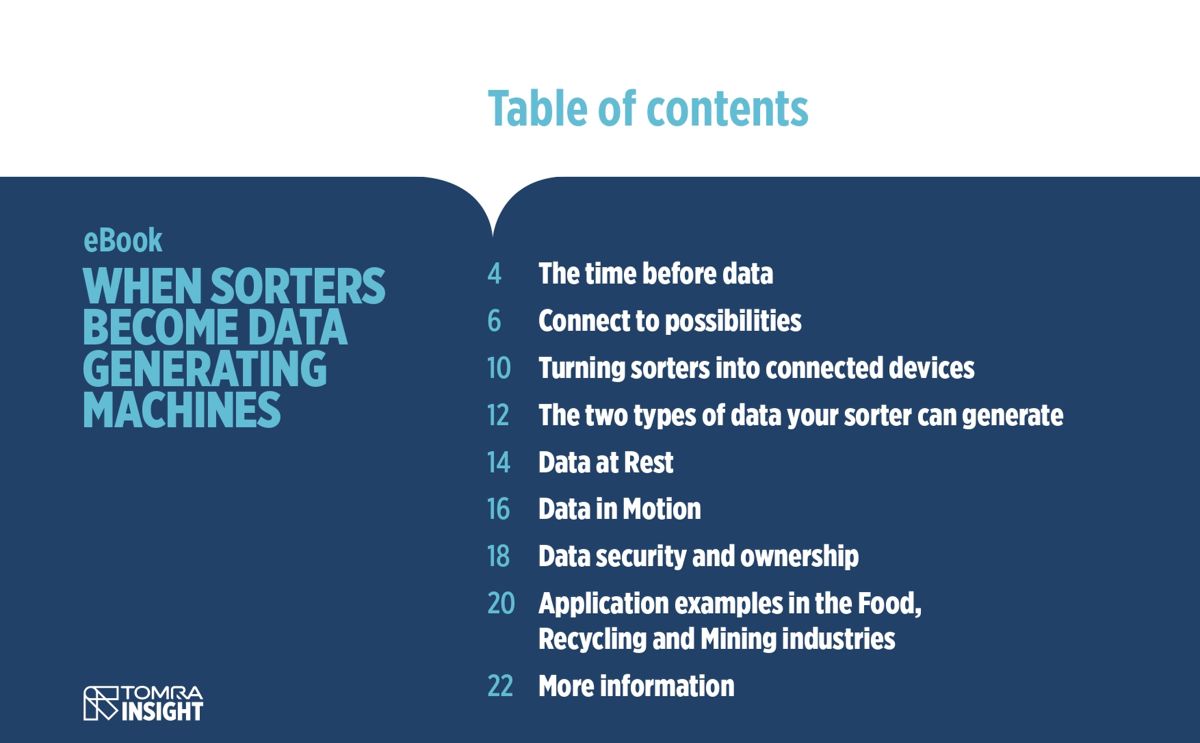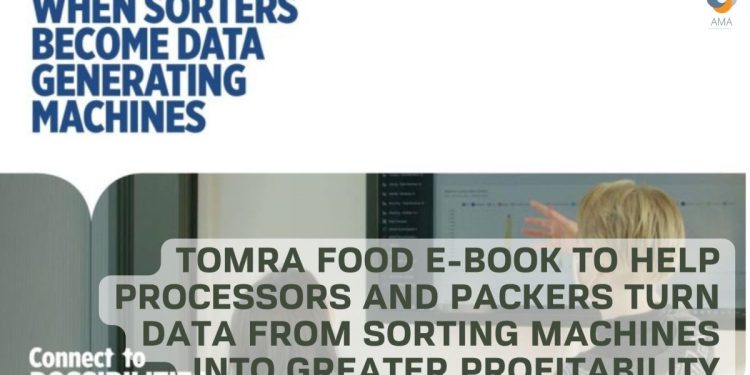TOMRA Food has published a new eBook to help food processors and packers enhance efficiencies and profitability by using information gathered by sorting machines. The easy-to-read, 21-page booklet, titled ‘When Sorters Become Data Generating Machines’, explains how businesses can “connect to possibilities” with the TOMRA Insight data platform, and the competitive advantages this gives.
The eBook starts by reminding us that sensors in sorting machines can do a lot more than identify whether products or materials on a line should be accepted or rejected.
The book says:
“They collect and store every piece of information about what they see. And this information can tell you a lot about how your machine is performing, about the products that pass through it, and your process.”
The eBook makes the encouraging point that turning TOMRA’s sorters into connected devices isn’t difficult, and businesses can benefit from digital sorting data with minimal impact – all that’s needed is wiring and a stable internet connection.
The data solution’s software stores and processes the data coming from sorters and presents this in near real-time in a dashboard-style monitoring and reporting system. This is compatible with SCADA systems – but whereas SCADA controls the process and visualizes related alarms, performances, and control parameters, the digital sorting dashboard enables advanced analytics based on much larger data sets and time series.
The data solution’s software stores and processes the data coming from sorters and presents this in near real-time in a dashboard-style monitoring and reporting system. This is compatible with SCADA systems – but whereas SCADA controls the process and visualizes related alarms, performances, and control parameters, the digital sorting dashboard enables advanced analytics based on much larger data sets and time series.
Two types of data can be generated by sorters. Data at Rest contains non-real-time information about machines, such as service reports, spare parts history, and manuals. Data in Motion contains a continuous flow of dynamic data originating from the sorting activity, including alarms, sorting throughput, and statistics. It is the Data in Motion which becomes a powerful reporting and decision-making tool.
The eBook identifies four categories of process data. Material composition statistics visualize what the machine sees, giving a good view of the nature and quality of the products or materials in the infeed stream. Material distribution statistics visualize the distribution of material on the machine over time, monitoring whether machines and processes are running optimally.
Sorting statistics visualize the sorting fractions, serving as a powerful tool for quality management and helping to match product characteristics to customer requirements. And machine health data provides information about the machine’s operational status and condition, preventing unnecessary downtime.
This deep mine of information is accessible and actionable through TOMRA Insight, the cloud-based data platform available to TOMRA machine users as a subscription-based service. The eBook explains how digital sorting data gathered by TOMRA Insight is secure – and how, by putting this data to good use, sorting can be transformed from an operational process into a valuable strategic management tool.
When Sorters Become Data Generating Machines
(Click to download the eBook | PDF)








